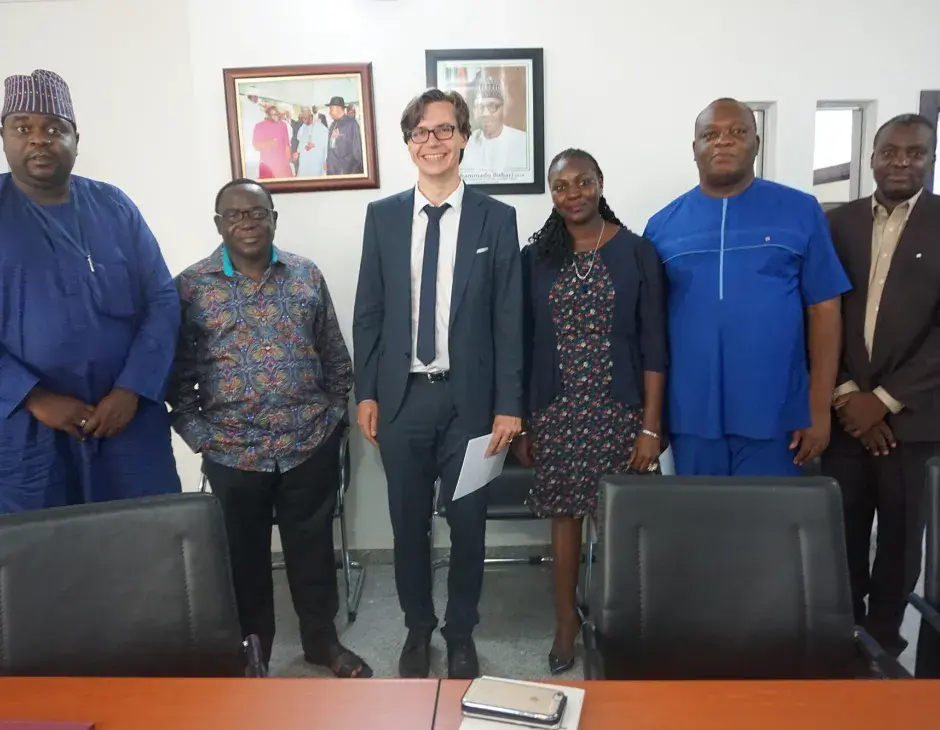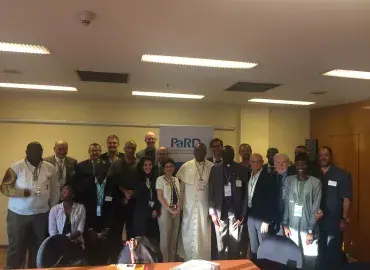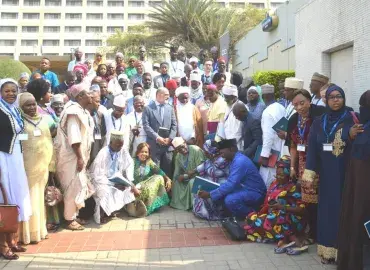The International Dialogue Centre (KAICIID) has solidified its role as a dialogue facilitator in Nigeria following a recent fact-finding mission and laid the groundwork for the upcoming intra-Muslim and intra-Christian dialogues later this year. With the findings and network of contacts from the mission, KAICIID was able to plan the upcoming dialogues as part of the “Coordinate to Achieve” programme, a series of meetings that will establish a sustainable interreligious dialogue platform in Nigeria.
Image
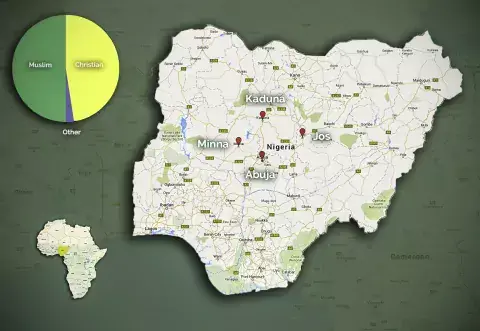

Nigeria, a country of 173 million inhabitants is evenly divided between Muslims and Christians: 52 per cent and 46 per cent respectively, with 1 per cent of other faiths. (Pew Research Centre)
The field visit was organized in cooperation with the Nigerian Institute for Peace and Conflict Resolution (IPCR) and local Nigerian stakeholders who welcomed KAICIID in the country and are looking to the Centre as an ideal neutral entity to facilitate dialogue between organizations, practitioners and religious institutions. With this local support, KAICIID was able to consult a diverse array of more than 25 representatives of religious and governmental institutions in Minna, Kaduna, Jos and Abuja and received overwhelming support for the programme.
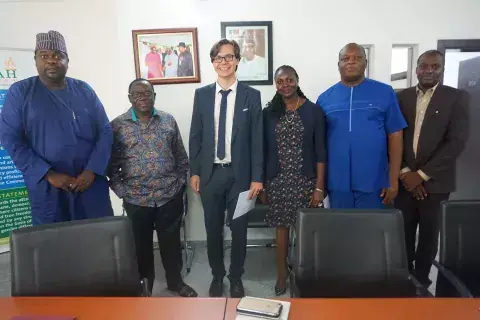
KAICIID met the Archbishop of Sokoto and Advisory Forum Member, Matthew Kukah, founder of the Kukah Centre for Faith and Leadership. From left to right: Mustafa Ndisi (IPCR), Bishop Kukah, Matthias Eder (KAICIID) Aisha Arigou (IPCR), Dr. Arthur Aginam (Director Kukah Centre), Paul Gwaza (IPCR)
The upcoming dialogue will take place later this year in Abuja and will consist of two parallel meetings, one Intra-Muslim and one Intra-Christian. The Centre will collaborate to assemble around 100 local religious and community leaders from various Christian and Muslim communities as well as engage women, youth, IRD experts and policymakers.
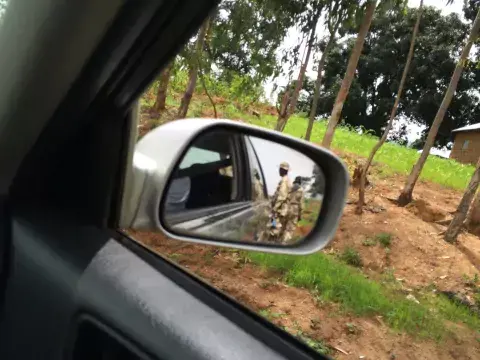
A security checkpoint between Plateau state between Kaduna and Jos
In recent times, there has been an increase in violence by extremist groups such as Boko Haram, seeking to manipulate religious identity in Nigeria for political ends. Religious and community leaders whom KAICIID spoke with said that these violent acts have threatened social cohesion in this historically diverse and multireligious society. According to them, there is an urgent need for dialogue platforms in Nigeria which leaders from different religious traditions can use to work together to combat growing intolerance and mistrust.
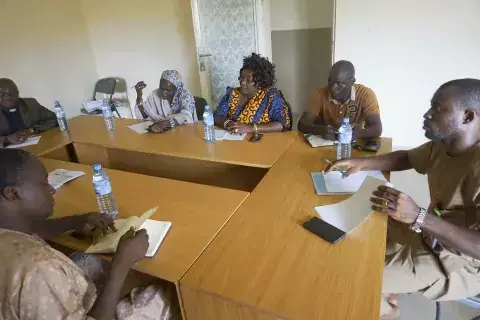
Meeting with local Muslim and Christian IRD practitioners including Justina Mike, a 2017 KAICIID Fellow, at the Dialogue Reconciliation and Peace Centre
“The current issue is that Boko Haram is poisoning the climate of dialogue between the Muslims and Christians in Nigeria. Nigeria is the world’s largest country that is so evenly split between Islam and Christianity, in which extremist, minority groups, even though they are a tiny minority of the population, cause a stalemate that prevents productive dialogue for peacebuilding and reconciliation." - Matthias Eder, KAICIID Programme Manager of for Nigeria
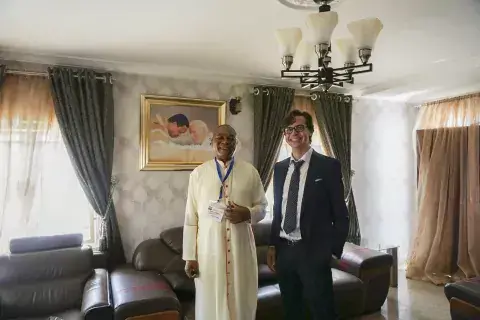
Archbishop of Abuja, John Cardinal Onaiyekan
According to the Archbishop of Abuja, John Cardinal Onaiyekan, the Centre could best support peacebuilding in Nigeria by supporting current interreligious dialogue initiatives through coordination between the parties and those conducting dialogues. There are numerous ongoing interreligious activities in the country, but local actors would welcome support in coordinating efforts and increasing visibility of their initiatives through documentation and mapping of their work.
Image
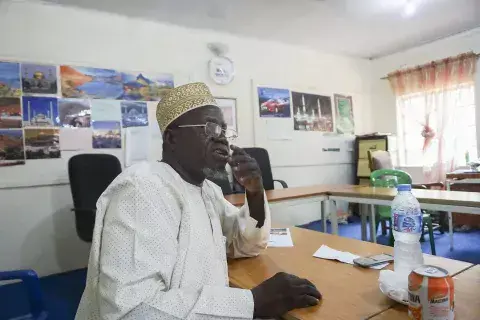

Ibrahim Yahya, Director of the Da’Wah Institute of Nigeria
“Here, religion is used to manipulate and divide the society for personal gain and media attention, while on the grassroots level, the amount of interaction and interreligious understanding is incredible,” said Ibrahim Yahya, Director of the Da’Wah Institute of Nigeria, whom KAICIID met during the visit. He feels that KAICIID will be a key player in building peace in Nigeria because an interreligious approach is paramount to resolving conflict in Nigeria.
Strategic Focus
Nigeria is one of KAICIID’s four focus countries among the Central African Republic, Myanmar and Iraq/Syria. KAICIID has established the Nigeria Country Programme to bring interreligious actors together to act in a meaningful way to promote peace and reconciliation. In Nigeria, the aim of the programme is the stabilization of the social fabric, particularly among Muslims and Christians, as well as between them. The programme intends to enhance foster local capacities of religious communities to actively and effectively contribute to conflict resolution and reconciliation in the region through interreligious peacebuilding.
Through this programme, the Centre is cooperating with the Institute for Peace and Conflict Resolution with which KAICIID implemented a project along with the Women of Faith Peacebuilding Network in January of 2015 in Abuja. IPCR also hosted a joint delegation consisting of representatives of the Organization of Islamic Cooperation and KAICIID in August 2015.
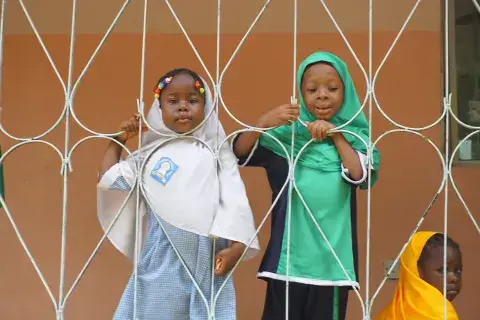
Children at the New Horizons College, Minna. The college is run by the Islamic Education Trust and has a Montessori Primary school, secondary school and training institute.
In October 2016, KAICIID continued its work with the International Partnership on Religion and Sustainable Development (…
The International Dialogue Centre (KAICIID) and the Institute for Peace and Conflict Resolution (IPCR), in collaboration with…

